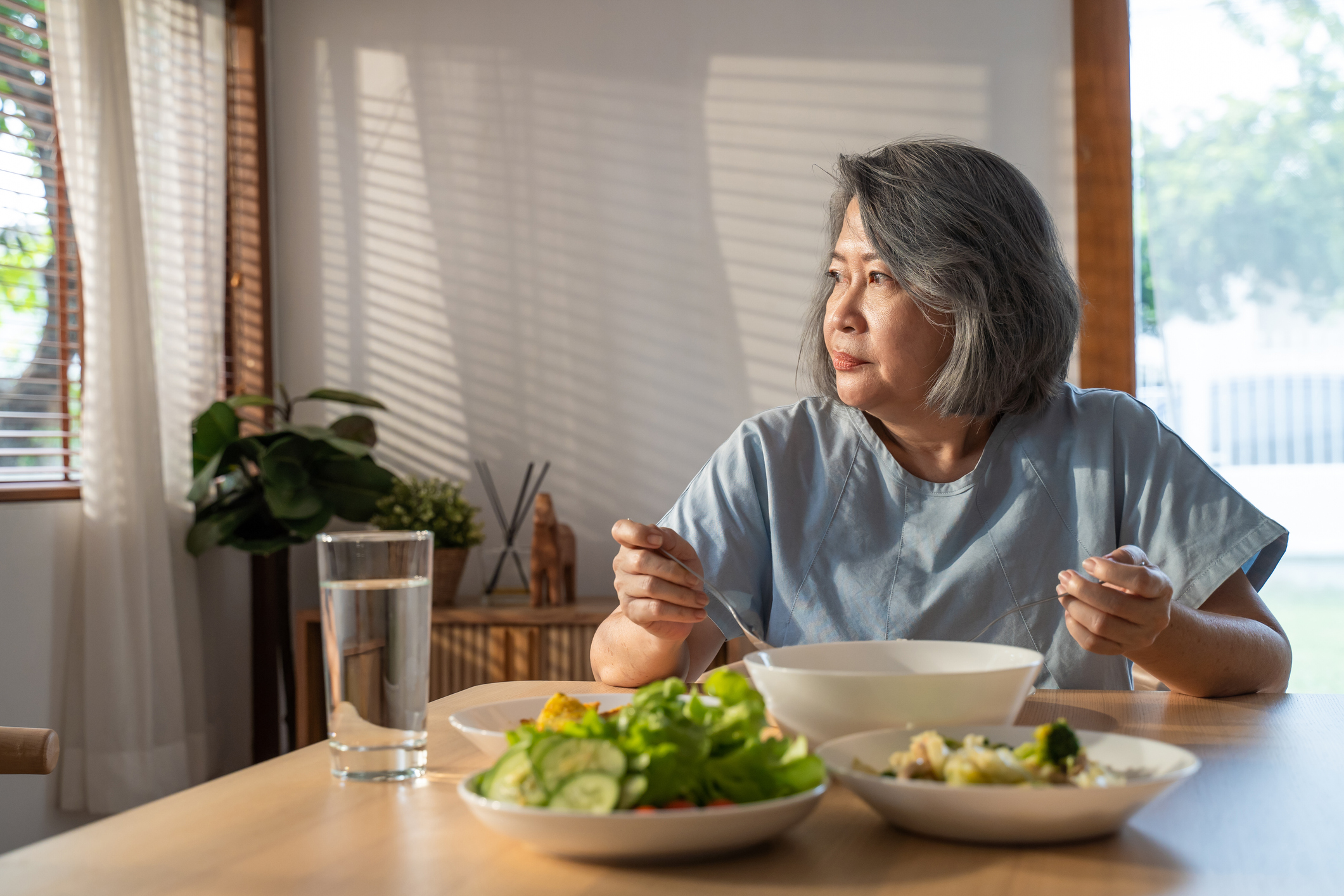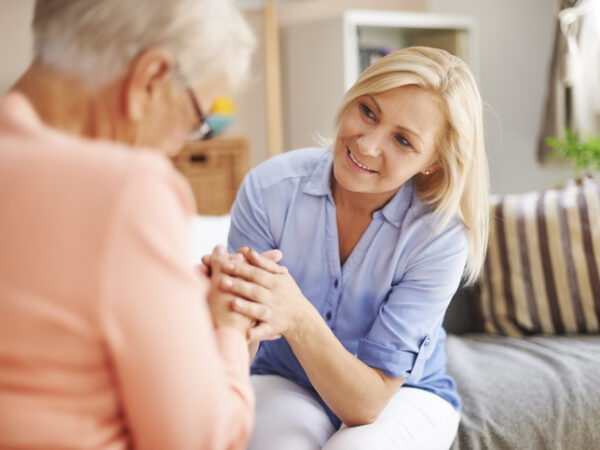As so many people discovered during pandemic lockdowns, social isolation can contribute to depression and lead people to make unhealthy lifestyle choices that may include a lack of exercise, a poor diet, or an increase in alcohol consumption. A recent study has found that eating alone, especially among older women, is associated with an increased risk for heart disease.
As reported by Everyday Health, research recently published in the journal Menopause found that women who ate by themselves were 2.58 times more likely to experience angina – pain, pressure, or squeezing in the chest that is a symptom of heart disease. The risk for heart attack or stroke increases in both men and women as they age, and for women, declining estrogen levels after menopause may also contribute to an increased risk for cardiovascular disease.
Researchers studied the effects of eating habits on heart risk with data from 590 menopausal women over the age of 65. Not only did older women who ate alone have a high risk for heart disease, but they also consumed fewer calories and demonstrated less knowledge about nutritional needs and food labels.
Although many older adults are still being careful about social distancing with the spread of the Delta COVID-19 variant, and while waiting for a booster vaccine, there are ways to stay socially connected virtually. Friends and family can help support older adults living alone by sharing a weekly meal over Zoom or gathering in small groups outdoors. As we head into the winter months, it’s important to stay connected with loved ones and watch for signs of depression in older adults that can lead to a higher risk for heart disease, obesity, heart attack, and cognitive decline.
Common Signs of Depression
- Indecision, difficulty thinking or concentrating
- Anxiety, restlessness
- Complaining
- Sleep Problems
- Depressed mood for most of the day
- Loss of interest in once enjoyed activities
- Unexplained weight loss or gain
- Loss of energy
- Feelings of guilt or worthlessness
- Thoughts of death or suicide
Depression is treatable and it’s important to get help as soon as possible. It is the most common mental illness, affecting an estimated 300 million people worldwide. Depression should be diagnosed by your doctor who will be able to rule out other health problems like medication side effects, thyroid issues, neurological illnesses, autoimmune disease, or nutritional deficiencies.






Add Your Voice
0 Comments
Join the Discussion